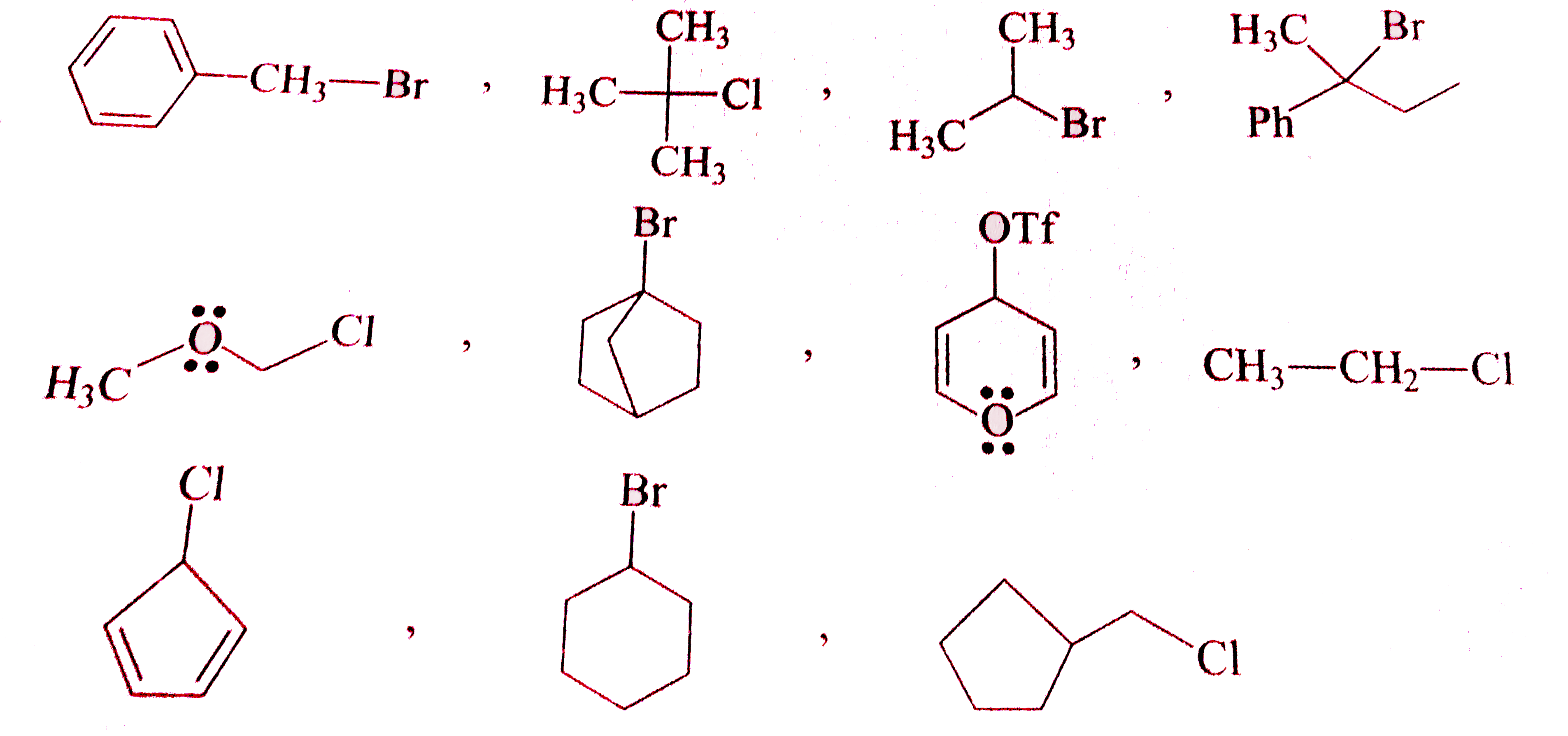Identify number of substrate those can give SN1 and SN2 reaction both .

The correct Answer is:6
Step by step video, text & image solution for Identify number of substrate those can give S_(N^(1))" and "S_(N^(2)) reaction both . by Chemistry experts to help you in doubts & scoring excellent marks in Class 12 exams.
Topper's Solved these Questions
- BOOK - HIMANSHU PANDEYCHAPTER - HALIDESEXERCISE - Subjective Type Problems10videos
HALIDES
- BOOK - HIMANSHU PANDEYCHAPTER - HALIDESEXERCISE - Match The Column13videos
HALIDES
- BOOK - HIMANSHU PANDEYCHAPTER - GENERAL ORGANIC CHEMISTRYEXERCISE - Subjective Type Problems19videos
GENERAL ORGANIC CHEMISTRY
- BOOK - HIMANSHU PANDEYCHAPTER - ISOMERISMEXERCISE - Subjective Type Problems11videos
ISOMERISM
Similar Questions
Knowledge Check
- Question 1 - Select One
SN1andSN2 reactions are
ABoth sterespecticBBoth stereoselectiveCStereoselective and Strerepselectfic respectivlyDStereoselective and Strerepselective respectivly - Question 2 - Select One
SN2 reaction are
Astereoselective as well as atereopecificBstereoselective but not stereospecificCstereospecific but not stereoselectiveDNeither stereospecific nor stereoselective - Question 3 - Select One
Rate of SN1 reaction is :
 AS>Q>R>PBS>R>P>QCP>Q>R>SDS>R>Q>P
AS>Q>R>PBS>R>P>QCP>Q>R>SDS>R>Q>P
Vinyl halides are inert towards both SN1andSN2 reactions. Assign reason.
View SolutionThe correct decreasing order of reactivity for a given (R) group in both SN1 and SN2 reaction mechanism is :
View SolutionSN1 reaction is faster in
View SolutionAliphatic nucleophilic substitution is mainly of two type SN1 and SN2.SN2 reaction proceed with strong nucleophile in polar aprotic solvent. 3∘ halides do not give SN2 reaction. Inverted products are obtained in this reaction and mechanism of reaction occurs through the formation of transition state.
SN1 reaction proceed through the formation of carbocation in polar aprotic solvent. Solvent itself acts as nucleophile in this reaction. Racemization takes place in SN1 reaction.
Which of the following compounds will give SN1 reaction ?View SolutionAliphatic nucleophilic substitution is mainly of two type SN1 and SN2.SN2 reaction proceed with strong nucleophile in polar aprotic solvent. 3∘ halides do not give SN2 reaction. Inverted products are obtained in this reaction and mechanism of reaction occurs through the formation of transition state.
SN1 reaction proceed through the formation of carbocation in polar aprotic solvent. Solvent itself acts as nucleophile in this reaction. Racemization takes place in SN1 reaction.
Which one of the following will give SN2 reaction?View Solution
